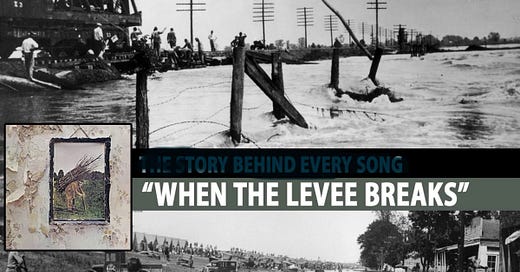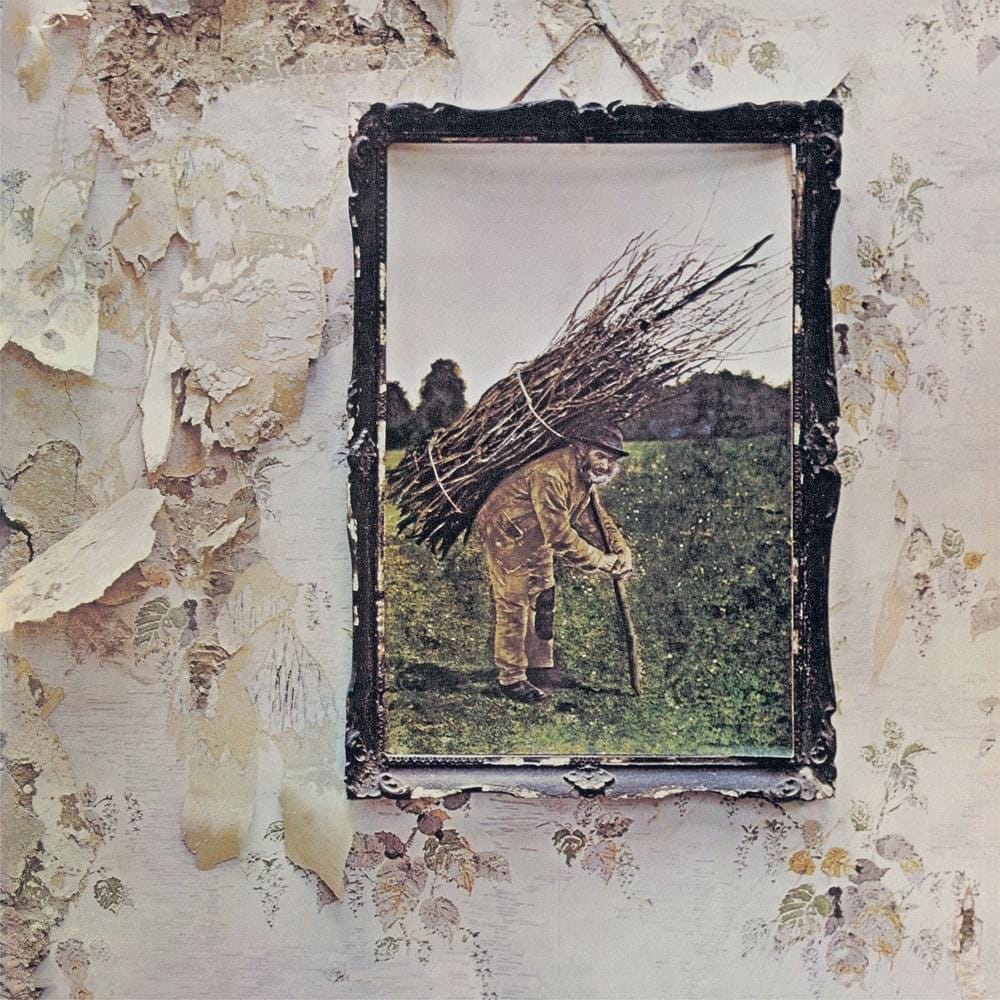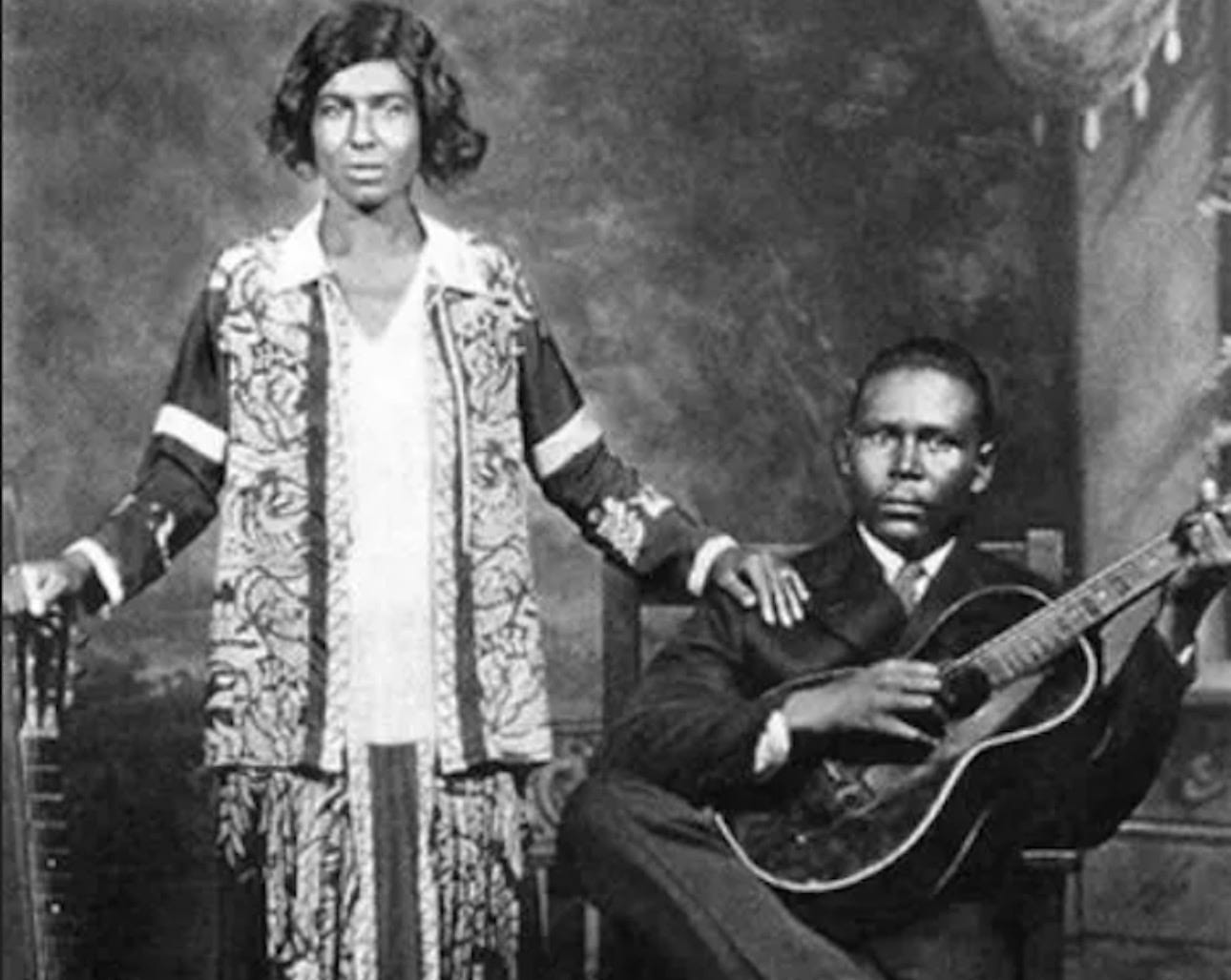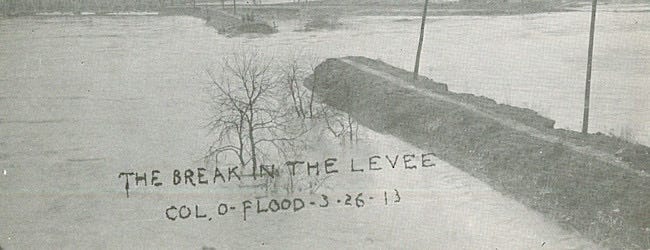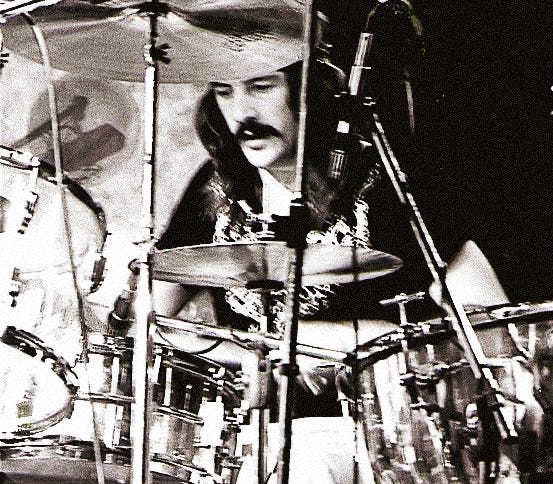When the Levee Breaks
(Great Song and Lesson for People Today)
“When the Levee Breaks” serves as a powerful reminder of our shared humanity, resilience, and the ongoing quest for justice.
Its relevance endures, connecting generations and inspiring young people to navigate life’s challenges with courage and determination.
The song "When the Levee Breaks" is a blues composition written and first recorded by Kansas Joe McCoy and Memphis Minnie in 1929. It was inspired by the Great Mississippi Flood of 1927, which devastated communities along the Mississippi River.
The song gained wider recognition when it was famously covered by Led Zeppelin for their fourth studio album, "Led Zeppelin IV," released in 1971. Led Zeppelin's version is notable for its heavy drumming by John Bonham and has become one of the band's signature songs.
Over the years, "When the Levee Breaks" has been covered by various artists and remains a classic in both blues and rock music history.
“When the Levee Breaks," carries timeless themes that resonate with young people today, despite the nearly century-long gap since its creation. The song's narrative of facing overwhelming challenges, confronting societal injustices, and navigating through adversity holds relevance in contemporary society.
In the context of today's world, where young people are increasingly vocal about social and environmental issues, "When the Levee Breaks" can serve as a poignant anthem. The metaphor of the levee breaking can symbolize the breaking point of various systemic issues, such as climate change, racial injustice, economic inequality, and mental health struggles, among others.
For young people facing these challenges, the song encapsulates a sense of urgency and resilience. Just as the characters in the song confront the impending floodwaters with determination and courage, young people today are compelled to confront the pressing issues of their time head-on.
Moreover, the song's raw emotion and powerful imagery resonate with the frustration and anger often felt by young activists and advocates striving for change. The relentless drumbeat in Led Zeppelin's rendition mirrors the heartbeat of a generation unwilling to accept the status quo and determined to create a better future.
Additionally, "When the Levee Breaks" serves as a reminder of the interconnectedness of humanity and the importance of collective action. In an era marked by global crises and social movements, the song emphasizes the need for solidarity and mutual support in the face of adversity.
Furthermore, the song's longevity and continued popularity across generations highlight its ability to transcend time and resonate with audiences of all ages. Its enduring relevance underscores the universality of human experience and the enduring struggle against injustice.
Lyrics
If it keeps on rainin', levee's goin' to break
If it keeps on rainin', levee's goin' to break
When the levee breaks, I'll have no place to stay
Mean old levee taught me to weep and moan, Lord
Mean old levee taught me to weep and moan
It's got what it takes to make a mountain man leave his home
Oh well, oh well, oh well
Don't it make you feel bad
When you're tryin' to find your way home
You don't know which way to go?
If you're goin' down south
They got no work to do
If you're going down to Chicago
A-ah, a-ah, a-ah
Cryin' won't help you, prayin' won't do you no good
No, cryin' won't help you, prayin' won't do you no good
When the levee breaks, mama, you got to move, ooh
All last night sat on the levee and moaned
All last night sat on the levee and moaned
Thinkin' 'bout my baby and my happy home
Ah-oh
Ah, ah, ah, ah
Ah, ah, ah, ah
Goin'
I'm goin' to Chicago
Goin' to Chicago
Sorry, but I can't take you, ahhh
Goin' down, goin' down now
Goin' down, goin' down now
Goin' down, goin' down
Goin' down, goin' down
Goin' down, goin' down now
Goin' down, goin' down now
Goin' down, goin' down now
Goin' down, goin' down-down-down-down-down
The song has a fascinating history.
Origins and Context:
The song was written and first recorded by Memphis Minnie and Kansas Joe McCoy in 1929.
At that time, the Great Mississippi Flood of 1927 was still fresh in people’s memories.
The flood affected 26,000 square miles of the Mississippi Delta, resulting in loss of life and displacement of hundreds of thousands of residents.
The song’s lyrics reflect the personal toll on a man who lost his home and family due to the devastating flood.
Despite the tragedy, the song also conveys a sense of rebirth 1.
Recording and Release:
Kansas Joe McCoy and Memphis Minnie recorded the song during their first session for Columbia Records in New York City on June 18, 1929.
The song features McCoy on vocals and rhythm guitar, while Minnie, the more accomplished guitarist, provided embellishments using a finger-picked style in a Spanish or open G tuning.
The record labels listed the artist as “Kansas Joe and Memphis Minnie”, regardless of who sang the song.
Columbia issued the song on a 78 rpm phonograph record, with another vocal performance by McCoy titled “That Will Be Alright” on the flip side.
Although released before industry publications began tracking so-called race records, it was considered a moderate hit 1.
Led Zeppelin’s Version:
English rock group Led Zeppelin reworked “When the Levee Breaks” as the last song on their untitled fourth album (commonly known as Led Zeppelin IV).
Robert Plant used many of the original lyrics, and the songwriting is credited to Memphis Minnie and the individual members of Led Zeppelin.
Led Zeppelin’s version is characterized by its heavy blues-rock sound, with John Bonham’s iconic drum intro setting the tone.
Fun Fact:
John Bonham's iconic drum sound on Led Zeppelin's "When the Levee Breaks" wasn't created in a fancy studio-it was recorded in a stairwell! The band set up Bonham's drum kit at the bottom of a three-story stairwell at Headley Grange, a country house in England.
They placed microphones high up the stairs, capturing the booming, thunderous echo that makes the track so legendary.
This creative recording technique gave the song its massive, unmistakable sound and changed the way drums were recorded forever. Just another example of Bonham's genius and Led Zeppelin's willingness to experiment!
The song remains a powerful and enduring part of Led Zeppelin’s legacy
When The Levee Breaks feat. John Paul Jones | Playing For Change | Song Around The World
https://youtu.be/LH0-WXUFY2k?si=U14lKPZ4s45KLrwr
“When the Levee Breaks" remains a powerful anthem for people today, offering a message of resilience, solidarity, and determination in the face of adversity.
As we confront the challenges of our time, the song serves as a rallying cry for action and a testament to the enduring spirit of the human condition.

